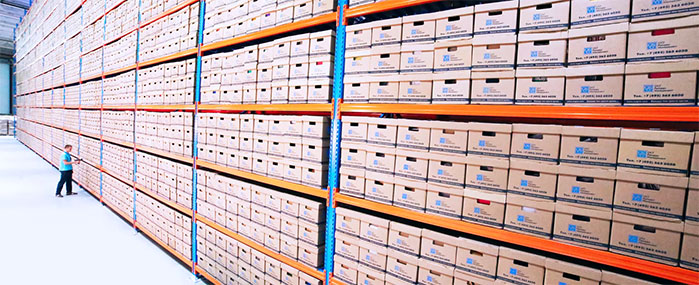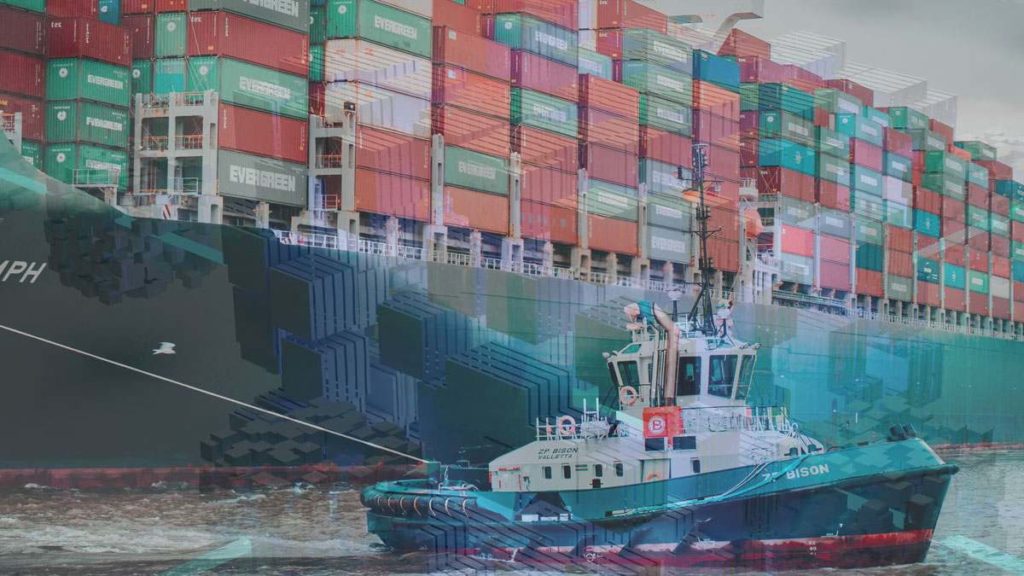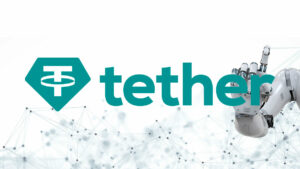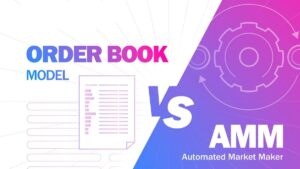A number of industries, including the supply chain, can benefit from the use of blockchain technology and be pushed to a much higher level of transparency and precision. Identify the key factors driving the adoption of cryptocurrencies and NFTs as a means of storing digital currencies, as well as the companies and companies involved in the development of cryptocurrency and NFT technologies. Some of the most impactful innovation is happening in the Blockchain Technology market, which Grand View Research predicts will experience a compound annual growth rate (CAGR) of 86% by 2030.
Decentralized Ledger Technologies (DLT) are revolutionizing operational processes, reducing costs, validating sourcing, reducing turnaround time, and improving customer service as companies deal with supply chain challenges and margin pressures caused by inflation and rising labor costs. We will be talking about these trends and how companies are using this technology to do what they are doing and how it can affect consumers and investors.
There are a number of companies currently exploring the advantages of leveraging blockchain technology in adjacent areas, such as implementing smart contracts, bringing additional rigor to payments for purchase orders, or creating demand chains where “real demand” signals can quickly propagate upstream supply chains. Despite saluting the promise of blockchain technology and the power of its principles, we believe it is critical that the supply-chain industry takes some time to evaluate its suitability against other, possibly simpler, and less expensive technologies.

Transforming Supply Chain Management
The blockchain is based on decentralized ledger technology, which records and protects all data associated with transactions shared across multiple parties. It is worth mentioning that cryptocurrencies such as Bitcoin, Ethereum, and Dogecoin take advantage of blockchain technology to theoretically allow unlimited anonymous parties to conduct transactions independently of each other.
However, with regard to supply chain management, there is a focus on allowing a set number of parties known to each other to interact directly without any third parties – while improving security, ensuring contract compliance, and also reducing costs. Rather than digital coins, supply chain blockchains create unique and verifiable identification numbers for purchase orders, inventory units, bills of lading, etc., by tokenizing a variety of transaction-related data.
The blockchain transaction chain is a chain of sequentially signed tokens moving through a chain of participants. The tokens are signed as they move through the chain by each participant’s unique digital signature.
Through the transfer of ownership between stakeholders, a full audit trail can be built into the chain throughout every stage of a transaction and ensure that not a single mischief can be committed since every stakeholder receives the same copy. Those bad actors who want to tinker with their own chain would also need to find a way to change the subsequent links in the copies maintained by all the other players too.

What Are the Benefits?
There are a few key benefits that companies can expect to experience using blockchain technology, including:
Improvements in Efficiency
In addition to relying on shared network infrastructure, blockchain technology enables all parties in a supply chain to communicate and collaborate more effectively. A greater level of traceability and transparency will eliminate the problems that can arise with excessive spending, waste, and duplicate orders, as well as rogue spending and invoice fraud.
All parties to a contract are encouraged to ensure that they meet their agreed-upon obligations in a timely, complete, and accurate manner by incorporating compliance contingencies. Having a full understanding of the financial data and performance of small businesses increases their funding options and reduces processing times by reducing uncertainty and risk.
Sourcing more ethically and more sustainably
Blockchains are a traceable, tamper-proof, and tamper-proof method for verifying where materials and goods originally came from, where they went as they traveled through the supply chain, and who had access to them during their storage.

Savings of greater magnitude
There are significant cost savings with blockchain technology, especially when it comes to improving efficiency and reducing stock loss and waste. Through distributed networks, resources and transactions can be shared and transacted digitally without dependence on paper-based workflows and documents.
As a result of going paperless, you won’t just save money on materials. You’ll also eliminate the ancillary costs related to storing all those physical documents, as well as the labor it takes to process them.
Functionality added to the program.
A blockchain is an open technology that can easily be integrated with other technologies such as automation and internet of things (IoT) objects, including smart sensors and RFID tags, in order to improve efficiency, visibility, and accuracy throughout the entire value chain.
What Does it Need?
In order to determine whether blockchain technology is suitable for a supply chain project, a few key factors need to be considered:
Interchange of Data
A blockchain is a good candidate when data from multiple parties needs to be exchanged between them in an unrelated manner.

Partners you can trust
In order to be able to trust the partners of the project, you have to be confident you can trust them because blockchain requires that updates are made by multiple people who are not related to each other.
Value shared by all
All the partners involved in the project will be incentivized to adopt the necessary processes and technologies if the project offers value to them.
Standards Defined for Data
There is no doubt that an EDI initiative that uses an existing standard such as electronic data interchange (EDI) will help keep data accurate, as long as a consistent and well-defined process and data standard can be implemented by all partners.
Integrated solutions
For blockchain to be effective, it should be integrated with the existing technology stack, such as an existing ERP.
Analyzing the costs in relation to the benefits
Additionally to capital costs, you also have to take into account the computational costs associated with implementing blockchain technology. If a transaction is processed through blockchain, the costs may be higher or lower according to factors such as how quickly the transaction has to be completed. There are many transactional costs that can be overlooked, but these costs are also a significant factor in determining whether or not a project is viable.
It is highly unlikely that a project will be worth pursuing if these elements have not been put in place.

Companies Using Blockchain in Supply Chains
The technology is still so new that many companies are unlikely to even consider implementing it as an emerging technology yet. Although the blockchain’s capabilities are not yet being used to their full potential by most companies within their supply chains, some companies in a number of industries are putting them to good use.
FedEx
To improve traceability and provide a trustworthy record to help customers resolve any issues they may have, FedEx has integrated the blockchain into its chain of custody. It has also joined the Blockchain in Transport Alliance (BiTA) and has taken a leading position in advocating for the adoption of an industry-wide standard based on blockchain technology.
DeBeers
The company is using the blockchain’s tracking technology to track every single natural diamond it mines in order to know its source and progress from beginning to end. The Tracker app allows the company to improve the efficiency of its inventory control system while also addressing the concerns of consumers about the ethical sourcing of gemstones.
Walmart
Several projects will be piloted by Walmart powered by Hyperledger Fabric, just one of the many ways that Walmart has taken a serious interest in blockchain. A major retailer has taken advantage of blockchain technology to help improve supply chain visibility and traceability – while being able to capture more ethical and strategic supply chain opportunities while they are at it. From tracking mangoes in the U.S. to tracking pork from its Chinese markets, retailers like Walmart have embraced technology, leveraging the blockchain to do so.
Blockchain technology has opened the door to transforming the global economy, but the blockchain’s role in this process will not end with the emergence of cryptocurrencies. There is a significant potential for the use of blockchain technology in the supply chain to provide greater visibility and control over it than it has ever had.
Businesses can unlock lower costs, greater efficiency, and a stronger position in a crowded and competitive marketplace by embracing the changing face of supply chain management and investing in the networking and technology required. Blockchain offers these advantages to businesses that are ready to embrace the changes.
Conclusion
The supply chain has a significant amount of room for improvement with regard to the end-to-end traceability of products, the speed of delivery, the coordination, and the financing. As the companies we studied have demonstrated, blockchain is a powerful tool for filling in these gaps, and the companies we studied have proven that.
The companies we studied have proven that. Now is the time for supply chain managers who have been sitting on the sidelines for quite some time now to consider the potential of blockchain as part of their business strategies.
In order for them to prosper, they need to participate in creating new rules, experimenting with different technologies, conducting pilot projects with various blockchain platforms, and developing ecosystems with other firms. Yes, this will demand a significant amount of resources, but the investment should pay off handsomely in the long run.










